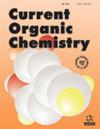开环聚合法合成多肽:简明综述
IF 2.1
3区 化学
Q3 CHEMISTRY, ORGANIC
引用次数: 0
摘要
:通过化学合成制备多肽最经济、最有效的方法是使用 N-羧基酸酐(NCA)单体对氨基酸进行开环聚合(ROP)。与蛋白质相比,多肽聚合物由重复的氨基酸单元组成,是一种相对简单的大分子。尽管这些多肽非常简单,但却能将合成聚合物(如溶解性、加工性和橡胶弹性)和天然蛋白质(包括二级结构、功能性和生物相容性)中的有益特性独特地结合在一起。然而,NCA 聚合面临着巨大的挑战,包括复杂的单体纯化和加工有毒溶剂的必要性。在此背景下,本综述介绍了这种聚合物化学的基本原理、NCA 单体的合成以及通过 ROP 获取多肽的不同方法。它还探讨了这一研究领域的最新进展,重点是新方法如何使人们能够使用更具反应性的引发剂和开发原始工艺,包括使用水性溶剂。本文章由计算机程序翻译,如有差异,请以英文原文为准。
Synthesis of Polypeptides by Ring-opening Polymerization: A Concise Review
: The most economical and efficient route to prepare polypeptides from synthetic chemistry is through the Ring-Opening Polymerization (ROP) of amino acids using N-carboxyanhydride (NCA) monomers. Peptide polymers, in contrast to proteins, consist of repeated amino acid units and are comparatively simpler macromolecules. Despite their simplicity, these polypeptides offer a unique combination of beneficial traits found in both synthetic polymers (such as solubility, processability, and rubber elasticity) and natural proteins (including secondary structure, functionality, and biocompatibility). Nevertheless, NCA polymerization faces significant challenges, including intricate monomer purification and the necessity for processing toxic solvents. In this context, this review presents the fundamental principles of this polymer chemistry, the synthesis of NCA monomers, and the different methodologies to access polypeptides by ROP. It also explores the most recent advances in this field of research, with a focus on how new methods enable the use of more reactive initiators and the development of original processes, including the use of aqueous solvents.
求助全文
通过发布文献求助,成功后即可免费获取论文全文。
去求助
来源期刊

Current Organic Chemistry
化学-有机化学
CiteScore
3.70
自引率
7.70%
发文量
76
审稿时长
1 months
期刊介绍:
Current Organic Chemistry aims to provide in-depth/mini reviews on the current progress in various fields related to organic chemistry including bioorganic chemistry, organo-metallic chemistry, asymmetric synthesis, heterocyclic chemistry, natural product chemistry, catalytic and green chemistry, suitable aspects of medicinal chemistry and polymer chemistry, as well as analytical methods in organic chemistry. The frontier reviews provide the current state of knowledge in these fields and are written by chosen experts who are internationally known for their eminent research contributions. The Journal also accepts high quality research papers focusing on hot topics, highlights and letters besides thematic issues in these fields. Current Organic Chemistry should prove to be of great interest to organic chemists in academia and industry, who wish to keep abreast with recent developments in key fields of organic chemistry.
 求助内容:
求助内容: 应助结果提醒方式:
应助结果提醒方式:


